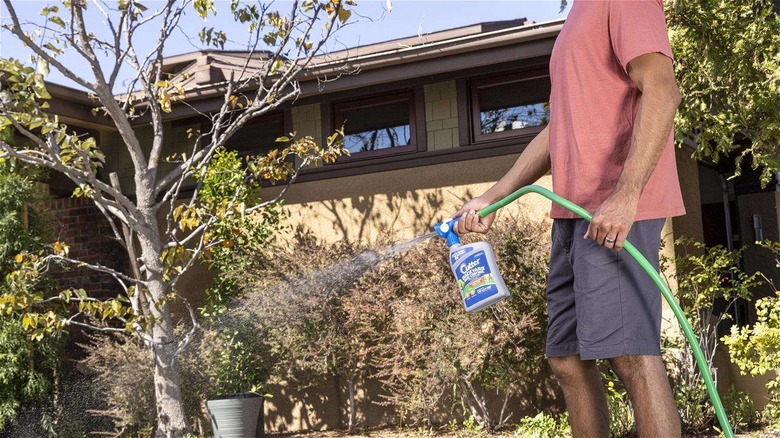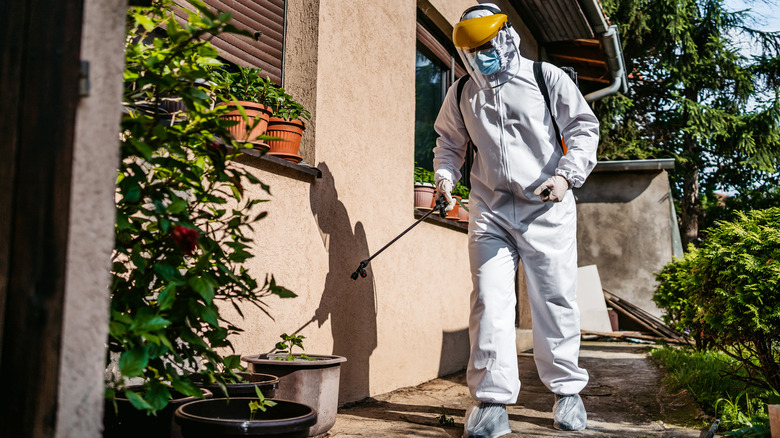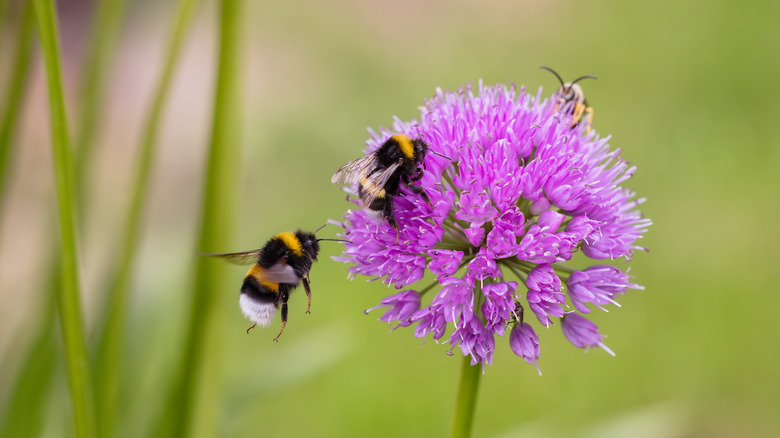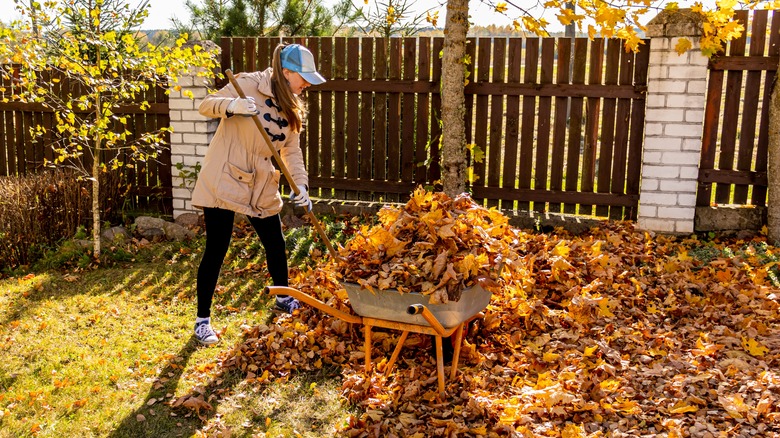Does Cutter Backyard Bug Control Work? Here's What We Know
We may receive a commission on purchases made from links.
Summer is one of the best times of year to enjoy your backyard. Unfortunately, mosquitoes, fleas, and ticks tend to agree. Whether you're already overrun by these biting pests or you're trying to get ahead of the problem, you've likely come across Cutter Backyard Bug Control. The potent insecticide is advertised as an easy-to-use spray that keeps pests out of your garden all summer long.
The good news is a study in the Journal of Medical Entomology shows that lambda-cyhalothrin, the active ingredient in Cutter, is a potent chemical compound that definitely kills bugs as advertised. It's a common ingredient in insecticides for two reasons: It works and it doesn't break down as quickly as other chemicals so it can remain active in your yard for weeks. The bad news is that it does that at the expense of the beneficial critters, like bees and butterflies, that you actually want in your yard. Here's what we know about the powerful insecticide and what you can do to avoid needing it in your backyard this summer.
How Cutter Backyard Bug Control keeps pests out
Cutter and other insecticides with lambda-cyhalothrin work by disrupting the nervous system of anything that eats, inhales, or touches the chemical. That disruption causes paralysis and death. While it has that effect on any living organism, it's commonly used as an insecticide because the dose needed to kill bugs is so much lower than the dosage that would be fatal for animals or humans. In one study published in the Journal of Medical Entomology, lambda-cyhalothrin reduced mosquito numbers by 87% to 100% for up to nine weeks after spraying. At 14 weeks, mosquito numbers were still at least 71% lower than they were before spraying. Other studies showed similar results on tick and flea populations.
Still, it can cause irritation or harm to you and your pets even at those lower concentrations. Symptoms of exposure typically include a tingling or burning sensation on the skin. It can also cause headaches, nausea, and dizziness. If someone is exposed to a high dose — such as a toddler accidentally getting into the chemicals in your garage — it can cause seizures or coma. So, it's important to read Cutter Backyard Bug Control Spray Safety Data Sheet.
Although it isn't required, it's a good idea to wear protective gear like safety glasses, gloves, and a mask when applying the insecticide to avoid exposure. You should also keep pets and kids out of the treated area until it's fully dried. Finally, store any leftover product in a place your kids can't access.
Cutter kills the good bugs as well as the bad
If you're dealing with an out-of-control infestation of mosquitoes, fleas, or ticks, a one-time application of Cutter might be your best hope for quickly and effectively getting rid of the harmful bugs. But it should be regarded as a last resort. This potent insecticide isn't a targeted treatment that only kills pests. It also kills many beneficial insects, including pollinators and the predatory insects that help control pest populations over the long term. Cutter's damage to pollinators can end up having a ripple effect across the rest of your garden. Since, according to a study done by Nordic Society Oikos, an estimated 78% to 94% of plants rely on pollinators to produce fruit and seeds, fewer pollinators can translate to lower yields from your fruit trees or vegetable beds.
While you'll get instant results, wiping out beneficial bugs can lead to even worse problems later. Without predators, pest populations can end up resurging with a vengeance next season in a process called trophic cascade. For example, mosquitos are pioneer insects, meaning they reproduce rapidly and can colonize an area quickly. But many of its predators are slower to repopulate after being wiped out by insecticide. Without predators or competitors to keep mosquito population growth in check, you can end up with an even higher number of these pests next season than you had this summer. This can turn into a vicious cycle of becoming increasingly dependent on harsh chemicals to keep pests at bay.
Safer pest control methods you can try instead
Before using Cutter or a similar lambda-cyhalothrin-based insecticide, try some DIY pest control methods using common kitchen ingredients to keep these unwanted bugs out of your yard. The best way to do that is by avoiding the mistakes that are attracting mosquitos, fleas, and ticks. Remove brush piles, leaf litter, and other cover where ticks and fleas like to hide. Then, mow your lawn frequently to keep the grass too short for ticks and fleas to hide throughout the season.
To prevent mosquitoes from laying eggs, remove standing water from your property. That includes regularly dumping out buckets, drying off tarps, and aerating your lawn to prevent pooling. You can also add mosquito dunks — a larvicide made from bacteria that exclusively feeds on mosquito larvae and is nontoxic to everything else — to any permanent water features or ponds in your yard.



